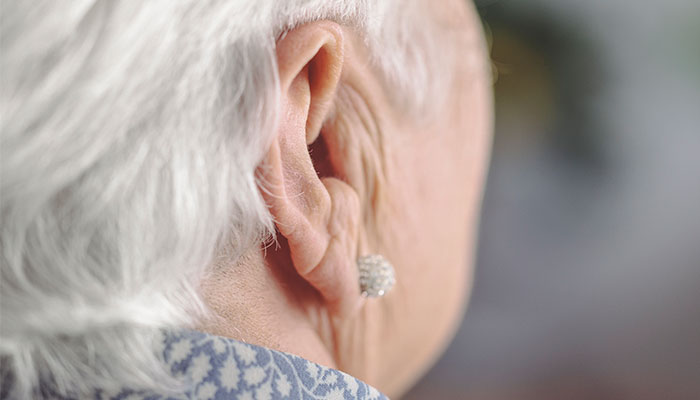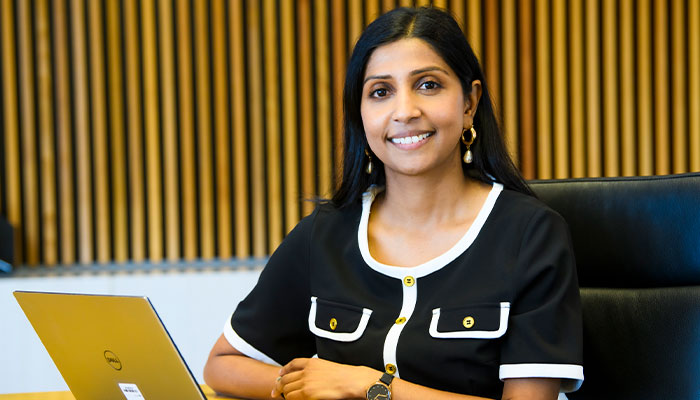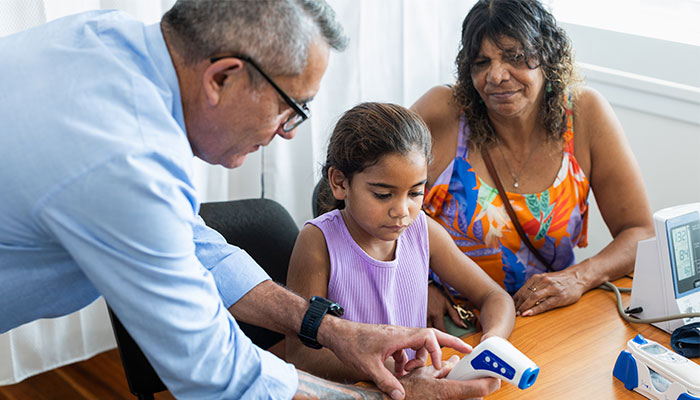The study is part of the wider Hearing Impairment in Adults: Longitudinal Outcome Study (HALOS), which aims to learn more about the benefits of hearing interventions for older adults in order to inform clinical practice, improve hearing healthcare and support the development of new policy.

Senior author and leader of the HALOS project, Professor Bamini Gopinath says the latest study found that despite technological advances, Australians with hearing loss are still navigating a fragmented system where clinical care does not always align with their needs.
“One of the most striking themes we saw was the variability in hearing healthcare,” Professor Gopinath says.
“Some people reported positive relationships with their GPs and audiologists, but many felt their needs weren’t being understood as well as they could be.
“One of the common points was that they said they wished that their clinicians had better knowledge and understanding of hearing health and related problems, and how they impacted other aspects of their lives.
“For example, GPs were often not raising hearing health in any of their conversations.
“Obviously, we expect our primary healthcare provides to manage an enormous range of conditions and they have many other competing priorities, so for some, hearing loss may be viewed as a non-critical condition that they don’t necessarily need to address as they would heart conditions or diabetes.
“Some participants said they felt hearing aids were the default position for their audiologists, and there was a lack of awareness about who was suitable for, and could benefit from, cochlear implants."
Professor Gopinath said some participants shared stories of prolonged waits for assessments, miscommunication around eligibility, or financial concerns that had an impact on their hearing health journey.
It’s time to reframe how we deliver care, moving away from isolated appointments to an integrated hearing care journey.
“They also reported feeling that their audiologists were doing the hearing tests but not asking how hearing loss was affecting other aspects of their lives, like work, relationships or mental health,” Professor Gopinath says.
Other findings from the interviews included that current government funding models, including the National Disability Insurance Scheme (NDIS) and the Hearing Services Program, were not always aligned with the real-world needs of adults with hearing loss. In some cases, strict eligibility criteria and administrative hurdles discouraged or delayed people from seeking help.
Participants in regional areas also noted difficulties in accessing specialised services, pointing to limited clinic options and the burden of managing multiple appointments for different devices.
Integrated care
The research team would like to see a more cohesive, multidisciplinary model of hearing care that incorporates medical, emotional and practical support throughout the patient journey.

Advocate for aging well: Senior author and leader of the HALOS project, Professor Bamini Gopinath, pictured above.
This would involve better integration between primary care, audiologists, and community services, and would include shared care planning, clear referral pathways, and greater use of tools like tele-audiology and digital apps, especially for people in rural and remote areas.
- The lower back pain treatments with long-term benefits: new review
- Eureka! The global warming maths problem that took 15 years to solve
The results from the study also provide a strong basis for health policy reform, particularly as Australia faces increasing rates of hearing loss due to its ageing population.
“Hearing health must be recognised as central to ageing well,” Professor Gopinath says.
“It’s time to reframe how we deliver care, moving away from isolated appointments to an integrated hearing care journey that reduces the likelihood that people will miss out on what they need to live well.
“If we were to adopt a multidisciplinary approach where primary health, hearing care and rehabilitation services worked together to create an integrated care pathway, it would result in better support for patients.
“My colleagues and I are currently working to develop evidence-based, standardised guidelines around hearing healthcare that would help educate and upskill GPs and audiologists.
“We want to ensure they are fully empowered and informed to not only discuss the available options with their clients but have those discussions at the right time.”
Professor Bamini Gopinath is Inaugural Cochlear Chair of Hearing Health at Macquarie University.



